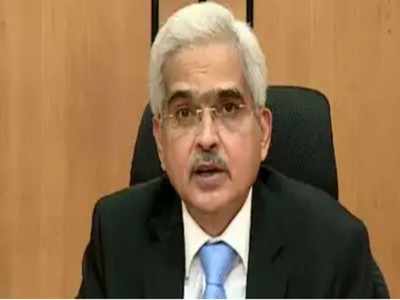
Importance of payments tech and it’s vital role
The world is very dynamic and has changed a lot in the last few years. From the dependence on one sector to another, from transforming the nature of work and much more, we have witnessed everything. One such thing which has changed a lot in the past years is money, yes the basic necessity of life. A few decades back, there was no existence of money in the country. Trade existed through the barter system in which people traded goods for goods.
But there were many problems related to the barter system of trade. The major problem was the lack of double coincidence of wants, which means that a barter system could exist if there was a coincidence in the wants of both the parties, which was not always possible. Moreover, there was no appropriate measure of value and thus there was the introduction of money, solving all the problems with the barter system.
Money has transformed a lot ever since it was introduced, from big coins holding small value of money to simple notes holding huge sums. We have witnessed demonetisation too, and have also witnessed the introduction of new values. However, the most important and successful introduction was the introduction of digital money, or we can say digitalisation of money.
It came to India very late after it was introduced in some developed and developing countries, but as we say better late than never. It has contributed a lot, and by a lot, we mean very hugely to the Indian economy and has benefitted the citizens as well as the country. To understand everything about this, we shall start from scratch.
What is digital money?

Digital money or digital currency refers to any means of payment that exists purely in electronic form and does not include the use of currency notes and coins. It is an intangible form of money, unlike currency bills or coins. It can be facilitated through many means, such as credit cards, computers or even smartphones. It can be even used to get the physical form of money, for example using a card to get money from ATM.
Ever since the concept of digital money was introduced in India, it has been widely used and India has not looked back since then. Payment systems are the lifeline of any economy and are the mode of achieving financial inclusion. In the initial stages of its introduction, there were not many people involved in it, however, the number started to rise once it gained popularity and now a huge population uses e-money to facilitate their day to day transactions.
Payments, the lifeline of Economy
It is completely true that payments play a vital role in the development as well as the functioning of an economy. They are considered as the means of providing financial inclusion to the country. Financial inclusion ensures that the benefits of the economy reach the bottom level of the pyramid, thereby reducing income inequalities. The pandemic has played a vital role in the destruction of our developing economy and therefore, financial inclusion led by the efficient payment system in the country would contribute to the sustainable and quick recovery of the economy in the post-pandemic era.

We all know that our country is one of the leaders in the world for the development of the state of art payment infrastructure and products which lead to the wide adoption of digital payments. This statement can be backed up by the official data which shows that the Prepaid Payment Instruments increased enormously at a Compound Annual Growth Rate (CAGR) of 53%. It rose from 41 crores in May 2017 to 226 crores in May 2021.
According to the report of RBI, 91% of the total Prepaid Payment Instruments consisted of e-wallets and the rest includes credit and debit cards. E-wallets have become very popular among people recently and have made the process of digitalisation easy. The process of digitalisation further accelerated with the introduction of fast payment systems such as Immediate Payment Service (IMPS) and Unified Payment Interface (UPI) which are available 24 hours a day and provide immediate credit to the beneficiaries.
RBI governor, ShaktiKanta Das pointed out in a report that only in June 2021, the payment system in India witnessed an average of 15 crore transactions daily, which means approximately 4.5 crore rupees per day of which much was done through UPI.
UPI was a locally developed platform and is so successful that it has attracted global interest from around the world. One another locally developed successful platform for e-payments is the Aadhar-enabled Payment System (AePS) which enables the transfer of funds and cash withdrawals through micro-ATMs and banking correspondents using Aadhar authentication. He further claimed that the cash transactions through micro-ATMs during the pandemic witnessed a surge with more than 94 crore transactions summing up to 2.25 lakh crore during the previous financial year.
Why this growth is important?

Talking about the citizens of the country, the e-wallets, UPI and other modes of e-payment provide a seamless experience to the customers. They reduce the need to depend on physical forms of cash and provide quick and easy transactions. The traditional mode of payment like paying through cash or cheque has many problems associated with it including risk, steps and physical presence. In a country like India, everyone is busy with their work and therefore the digital payment methods help them save time and effort, which is the key reason behinds its unstoppable growth.
Talking about the economy, it helps in many ways to help it grow. When people witness ease in the transaction, they transact more online. This means that it increases the number of people buying online, transacting funds via the electronic platform and even invest digitally. This leads to better movement of money and online business contributes to the progress of the economy. Only due to this reason we are witnessing the increasing launch of online ventures and more and more people contribute to the development of the economy while earning for themselves.
Further, the pandemic has led to a rise in the growth of the digital economy with greater adoption of digital payments. It is very important for our country to take steps towards the digitalisation of payments and therefore promote financial inclusion. The financial system of the country is inclusive and is capable and can also lead to a rise in frauds, data privacy and cybersecurity, therefore the steps towards the growth of this economy should be very carefully taken to benefit the country.
Edited by Aishwarya Ingle




